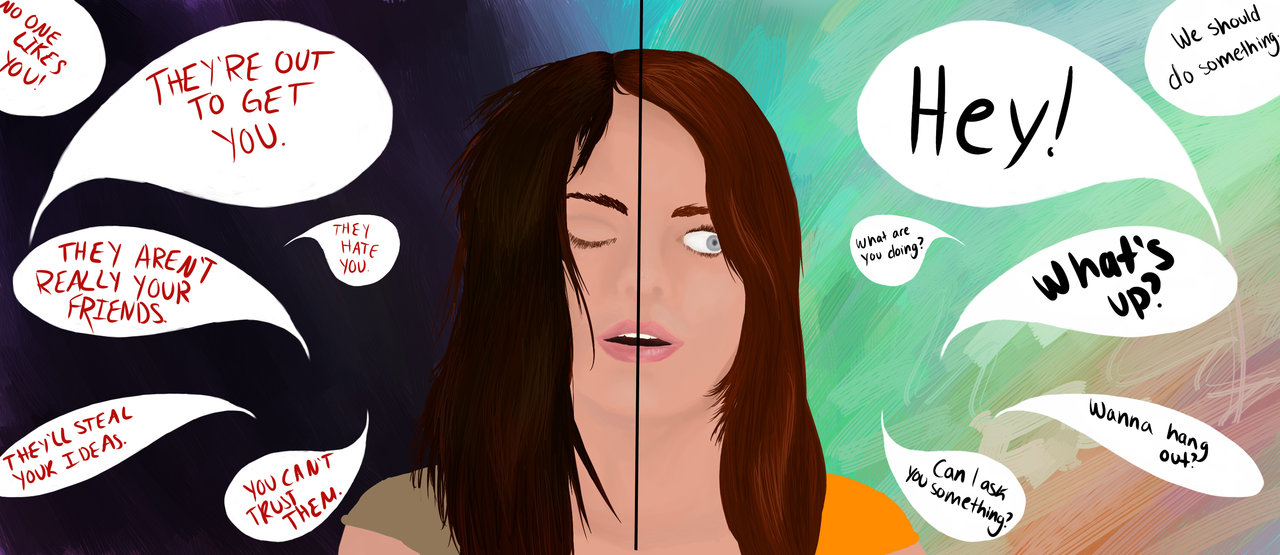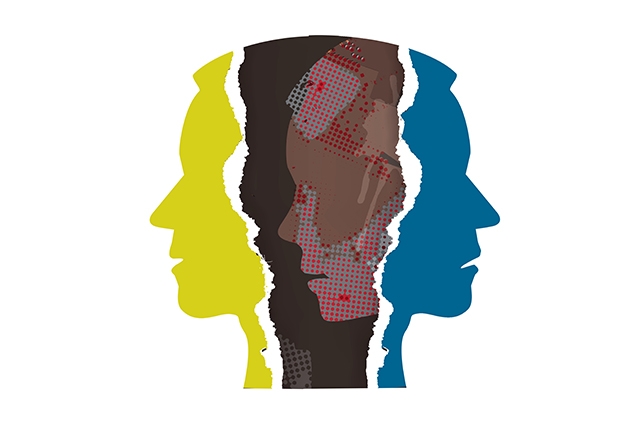The term Paranoid Schizophrenia is used to describe the most severe form of schizophrenia. It is a chronic, severe mental illness that can be devastating to its sufferers and their families. This article will give you a snapshot of what paranoid schizophrenia looks like, how it may present in different degrees, and some treatment options.
Contents
What Is Paranoid Schizophrenia?
Paranoid schizophrenia is a type of schizophrenia that is characterized by delusions and hallucinations. Delusions are fixed, false beliefs that are not based on reality. Hallucinations are perceptions that occur without any external stimulus.
People with paranoid schizophrenia may experience persecutory delusions, which involve the belief that they are being persecuted or spied on. They may also experience delusions of reference, which involve the belief that insignificant events or remarks have personal significance.
They may also experience auditory hallucinations, which are voices that they hear without any external stimuli. The voices may be critical, hostile, or insulting. Also, some people may also experience visual hallucinations, which are images that they see without any external stimuli. The images may be disturbing or threatening.
Symptoms Of Paranoid Schizophrenia

People who experience this severe schizophrenia often go through an initial psychotic episode, which can sometimes include a period of hospitalization.
After the initial episode, it is important to follow up with a mental health professional on a regular basis to help manage the symptoms and prevent future episodes.
The symptoms of this severe schizophrenia can vary from person to person. However, some common symptoms include:
- Delusions
- Hallucinations
- Disorganized speech or thinking
- Inappropriate or nonexistent emotional responses
- Behavior that is not appropriate for the situation or environment
Types Of Paranoid Schizophrenia

There are several types of paranoid schizophrenia. These include:
Hebephrenic Schizophrenia
This type of paranoid schizophrenia is characterized by disorganized thinking, behavior, and emotions.
Paraphrenic Schizophrenia
People with this type of paranoid schizophrenia experience delusions and hallucinations, but they are not as severe.
Catatonic Schizophrenia
People with this type of paranoid schizophrenia may have unusual motor behavior. They can sometimes become very still, resist being moved or repositioned, and remain in uncomfortable positions for long periods of time.
Simple Paranoid Schizophrenia
This type of paranoid schizophrenia is characterized by delusions and hallucinations that are not as severe as those experienced in other types of paranoid schizophrenia.
Degrees Of Paranoid Schizophrenia

There are different degrees of paranoid schizophrenia, which can be based on the severity of the symptoms. The three main degrees are mild, moderate, and severe.
Mild paranoid schizophrenia
Mild paranoid schizophrenia may only have a few of the symptoms. In this case, treatment may only include psychiatric care and support from family members.
Moderate paranoid schizophrenia
Moderate paranoid schizophrenia has more pronounced delusions, hallucinations, or disorganized behavior than mild cases of the disorder. Antipsychotic medications in addition to psychotherapy and social support are generally considerable treatment options.
Severe paranoid schizophrenia
Severe paranoid schizophrenia is the most severe form of the disorder. This type often requires hospitalization and intensive treatment with antipsychotic medications.
Treatment Options For Paranoid Schizophrenia

There is no cure for schizophrenia, but there are many different treatments available that can help control the symptoms. The treatment options for paranoid schizophrenia depend on a number of factors. These include:
- Etiology (what caused the disorder) and previous course of illness if available, including response to past treatment
- Levels of severity and the presence of co-existing disorders or conditions, such as depression and anxiety
- The degree to which the person is suffering from psychotic symptoms (delusions, hallucinations)
Treatment Options
Medications are the most common form of treatment for paranoid schizophrenia. There are several different categories of medications that can be used to treat this disorder, including:
Antipsychotics: These medications help reduce hallucinations and delusions. They may also help improve moods and behaviors among people with schizophrenia.
Psychotherapy: This is a type of counseling that helps people understand and manage their thoughts and feelings. It can be used in combination with medication or on its own.
Social support/psychoeducation groups for family members: These groups offer support to families of people with paranoid schizophrenia. They can provide information about the disorder and how to help a loved one who has it.
Medications For Schizophrenia
Medications have side effects that vary from person to person and are based on the type of medication being used. Common medications for this severe schizophrenia include:
Antipsychotics (older generation, first-generation): These are typical antipsychotics. They often lead to movement disorders like muscle spasms or tremors.
Atypical antipsychotics (newer generation, second-generation): These medications may cause mild movement disorders. They can lead to weight gain and high blood sugar levels in some people.
All medications have side effects that vary from person to person based on age, medical condition, specific type or brand of medication used, etc.
Medication Side Effects
All medications have side effects. However, the severity of these may vary based on a number of factors. These include:
- The age and medical condition of the person taking medication
- The specific type or brand of medication being taken
Some of the common side effects include:
- Constipation
- Insomnia
- Drowsiness, dizziness, or tremors
- Fatigue and loss of energy
- Weight gain/increased appetite
- Blurred vision or dry mouth
- Decrease in sexual desire
- Agitation, hostility, increased anger, or aggression
These symptoms may lead to violence towards others. This can be a sign of an emergency and calls for immediate medical attention.
Therapy Options

There are many different types of psychotherapy available, so it is important to find one that suits the individual’s needs. Some common therapies include:
Cognitive-behavioral therapy (CBT): This type of therapy helps people change the way they think and behave. It can help reduce hallucinations and delusions.
Family-focused therapy: This type of therapy helps family members understand and support their loved one who has paranoid schizophrenia.
Psychodynamic psychotherapy: This type of therapy focuses on the emotional factors that may contribute to the disorder.
NOTE: It is important to work with a mental health professional to develop a treatment plan that works best for you or your loved one.
Signs That Immediate Medical Attention Is Needed
If a person is experiencing any of the following symptoms, it is important to seek immediate medical attention:
- Suicidal thoughts or behaviors
- Extreme agitation and aggression
- Physical violence towards others
- Hallucinations that are very realistic and cause fear
- Inability to care for oneself or perform basic activities of daily living
A Piece Of Note

When a person is dealing with paranoid schizophrenia it can be very difficult and scary for them and their loved ones. It’s important that people provide support and understanding during this time as the symptoms of this severe schizophrenia may cause fear, anger, or confusion among those around them.
During treatment, family members should talk openly about any concerns they have and ask the therapist any questions they may have. There are many different types of support groups available for family members of people with this severe schizophrenia.
These groups can provide information about the disorder, how to cope, and how to best help a loved one who is dealing with it. It is important to remember that everyone experiences schizophrenia differently and there is no one-size-fits-all treatment plan.
This is why it’s important to work with a mental health professional and be open about any concerns or questions you may have along the way to develop a personalized treatment plan that works best for you or your loved one.
Talking To a Professional
If you or someone you know is experiencing symptoms of paranoid schizophrenia, it is important to seek professional help. A mental health professional can provide a diagnosis and develop a treatment plan that is right for you or your loved one. You don’t have to go through this alone. There are many different types of support available, so please reach out for help.
Conclusion
Paranoid schizophrenia is a serious mental illness. It can cause delusions and hallucinations that may be disturbing or threatening. The symptoms can vary from person to person and range from mild to severe. Treatment options include antipsychotic medications and psychotherapy. There are also support groups available for family members. It is important to seek immediate medical attention if there are any changes in mood or behavior.
If you are looking for affordable Online Counseling MantraCare can help: Book a trial therapy session


